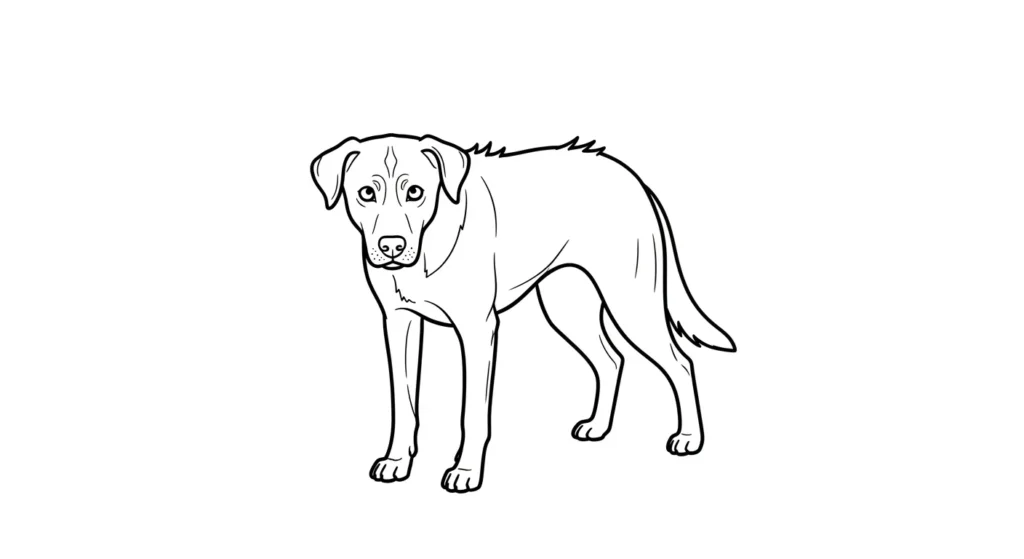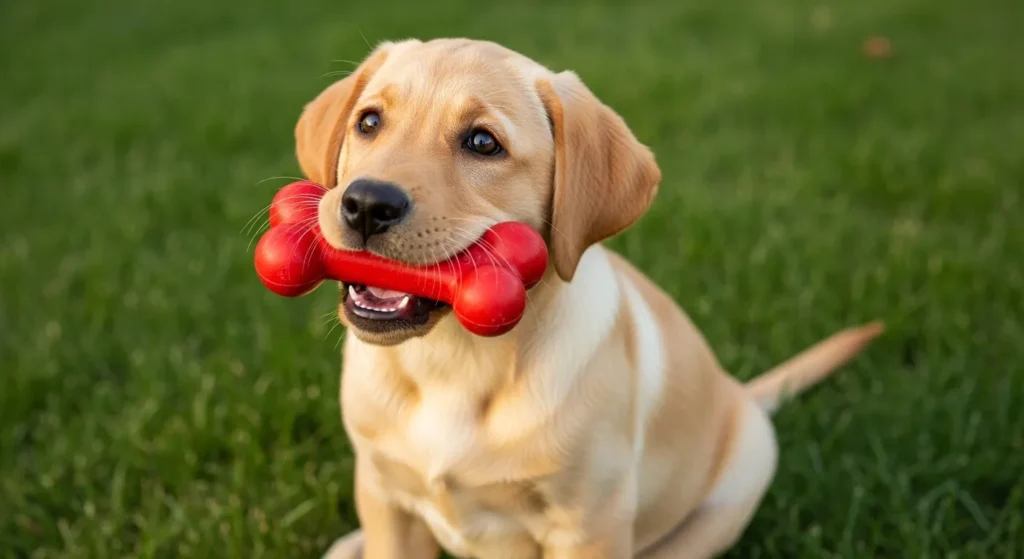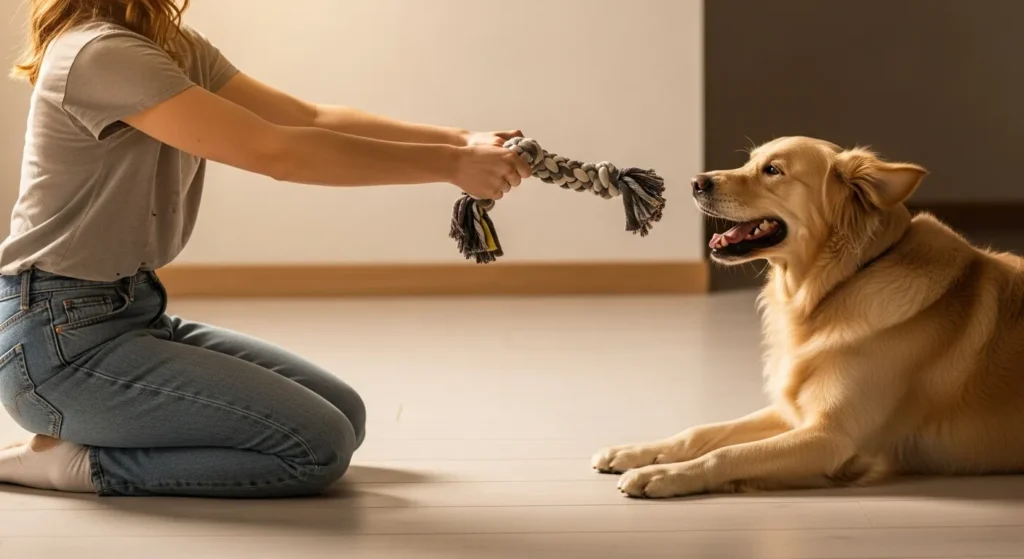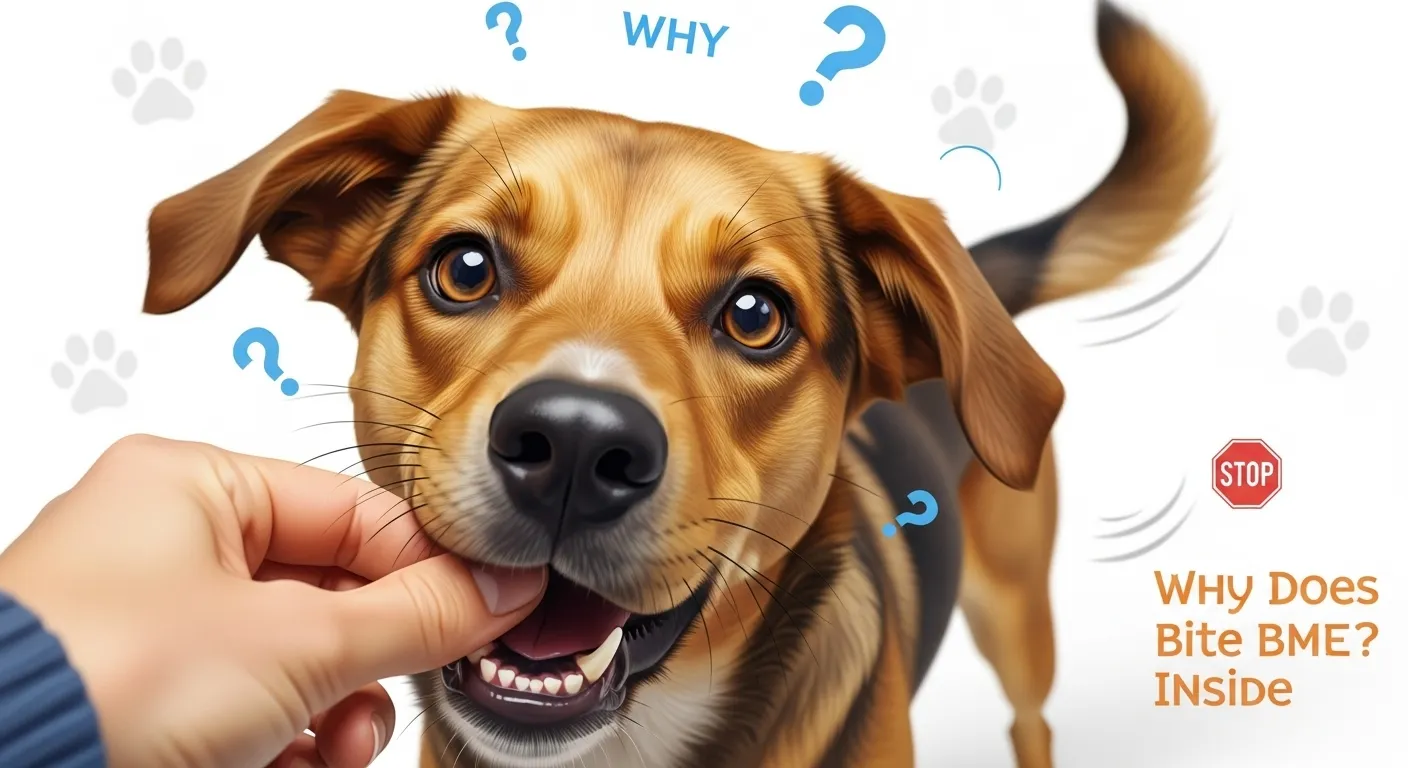If your dog nips at your hand during play or snaps when you pet him, it can worry you. Most times, this comes from normal dog ways. But sometimes it points to a bigger issue. This guide covers why it happens and steps to fix it. You’ll learn to spot the cause and train your dog safely. Keep reading to help your pup and stay bite-free.
Common Reasons Dogs Bite Their Owners
Dogs bite for many causes. Some are harmless like play. Others need quick action. Here are the main ones.
Play and Teething in Puppies
Puppies explore with their mouths. They bite hands or feet like toys. This peaks around 3 to 6 months when teeth come in. It hurts less than adult bites but can bruise.
- Pups learn from littermates to be gentle.
- If alone too early, they miss this lesson.
- Herding breeds like Border Collies nip heels to “herd” you.
Link this to our pet breed finder quiz to see if your dog’s type plays a role.
Fear or Feeling Trapped
Your dog might bite if scared. Loud noises, strangers, or tight spots make him snap to get space. Rescue dogs often do this from past bad times.
- Watch for stiff body, tucked tail, or whale eye (whites show).
- Sudden bites happen if you wake him from sleep.
- Older dogs bite more if hearing or sight fades.
If fear seems the issue, check our common dog owner mistakes for tips on better daily routines.
Pain or Health Problems
A sick or hurt dog bites to say “stop.” Touch a sore paw or tummy, and he reacts. This can start out of nowhere.
- Arthritis, ear infections, or tummy pain cause it.
- Brain issues in old dogs lead to snaps.
- Always rule out health first.
Use our pet symptom checker to spot signs.
Guarding Food or Toys
Dogs guard what they value. He bites if you near his bowl or favorite ball. This ties to wild roots.
- Puppies test limits; adults hold firm.
- It worsens if you punish him over it.
- Multi-pet homes see more of this.
Read our how to house train your dog for overall routine tips that cut guarding.
Frustration or Over-Excitement
Tied up or can’t reach a cat? Your dog bites you in anger. Excitement from play turns to nips too.
- Leash pulls lead to turned bites.
- Bored dogs act out more.
- Tired pups get cranky like kids.
Our pet compatibility checker helps if other animals add stress.

How to Tell If It’s Play or a Real Problem
Not all bites mean trouble. Play bites are soft and fun. Real ones hurt and come with warnings.
- Play: Loose body, wagging tail, bouncy moves. He stops if you say ouch.
- Aggression: Growls, stiff stance, quick snaps. Bites draw blood or bruise.
- Check age: Pups under 6 months often mouth. Adults need checks.
People also ask: “Why is my dog biting me all of a sudden?” It could be pain or change like a new home. “At what age do dogs stop biting?” Most ease by 1 year with training.
For body cues, watch this ASPCA video on mouthing.

Steps to Stop Your Dog from Biting
Fix it with calm training. Start young, but adults learn too. Be patient and consistent.
Teach Gentle Mouths
Let him mouth soft at first. If hard, yelp loud like a pup. Stop play for 30 seconds. Praise soft touches.
- Use toys, not hands, for games.
- Reward sits over jumps.
- Time-outs in crate for repeats.
Build Better Habits
Ignore bad bites. Turn away and fold arms. No yelling or hits – that scares more.
- Walk him daily to burn energy.
- Train “leave it” with treats.
- Play fetch to tire him out.
“Why does my dog bite me when I walk away?” He wants play to go on. Teach a sit-stay instead.
Link to our pet age calculator to match training to his real age.
Handle Guarding
Feed in peace. Trade toys for treats to show sharing pays.
- Never grab from mouth.
- Short sessions build trust.
People also ask: “How do you discipline a dog that bites?” Use positives, not force. “Why does my dog bite me and not my husband?” He sees one as play buddy, other as boss.

When to Get Help from a Pro
If bites draw blood or he growls often, call a vet. Check for pain. Then see a trainer.
- Sudden changes mean health check.
- Kids or old folks at home? Act fast.
- Pros use force-free ways.
Related searches include “why does my dog bite me gently” – that’s often love or grooming. But watch patterns.
“Why should I get rid of my dog if he bites me?” Only if unsafe after tries. Most fix with work.
Our pet food safety checker ties in if diet causes crankiness. For more reads, try why is my dog shaking – it links to stress bites.
End with safety: Muzzle if needed, supervise kids. Your dog wants peace too. Train now for a happy bond.
